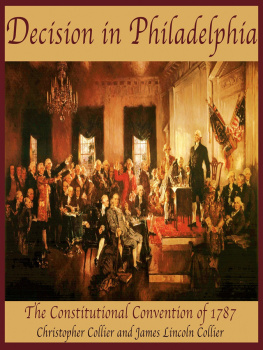Creating the Constitution
Library of Congress
Cataloging-in-Publication Data
Anderson, Thornton, 1915
Creating the Constitution : the Convention of 1787 and the first Congress / Thornton Anderson.
p. cm.
Includes bibliographical references and index.
ISBN 978-0-2710-0920-9
1. United StatesConstitutional history.
2. Federal governmentUnited StatesHistory.
3. United StatesPolitics and government17831809.
4. Constitutional conventionsUnited StatesHistory.
5. United States. Constitutional Convention (1787)
6. United States. Congress (1st: 17891791)
I. Title.
KF4541.A88 1993
342.730292dc20
[347.302292] 92-31502
CIP
Copyright 1993
The Pennsylvania State University
All rights reserved
Printed in the United States of America
Published by
The Pennsylvania State University Press,
Suite C, Barbara Building, University Park, PA 16802-1003
It is the policy of The Pennsylvania State University Press to use acid-free paper for the first printing of all clothbound books. Publications on uncoated stock satisfy the minimum requirements of American National Standard for Information SciencesPermanence of Paper for Printed Library Materials, ANSI Z39.481984.
For my parents
Keturah Hogan Anderson
Thornton Hatfield Anderson
who taught me independence
CONTENTS
Target meeting date: 514
Quorum achieved (seven states): 525
Virginia Plan presented: 529
Report of the Committee of the Whole: 613
New Jersey Plan presented: 615
New Jersey Plan rejected: 619
Committee on representation elected: 72
Committee on representation reported: 75
[Jillsons first realignment (vote 156): 716]
Connecticut Compromise voted: 716
Committee of Detail elected: 724
Convention adjourned to await report: 726
Committee of Detail reported: 86
Committee on commerce and the slave trade appointed: 822
[Jillsons second realignment (vote 351): 823]
Committee on commerce and the slave trade reported: 824
Commerce and slave trade compromise voted: 825 to 829
Brearley Committee on postponed matters elected: 831
[Jillsons third realignment (vote 441): 93]
Brearley Committee made its main report: 94
Presidential election method voted: 95
Style Committee elected: 98
Style Committee reported: 912
Final approval of the Constitution: 917
BY STATE, FROM NORTH TO SOUTH, WITH THE QUORUM EACH STATE REQUIRED
| Attendance |
| NEW HAMPSHIRE (2) |
| c | Nicholas Gilman | 7-23 to end |
| c | John Langdon | 7-23 to end |
| MASSACHUSETTS (3) |
| n | d | c | Elbridge Gerry* | 5-29 to end |
| c | Nathaniel Gorham | 5-28 to end |
| c | Rufus King | 5-21 to end |
| n | Caleb Strong | 5-28 to 8-17 |
| CONNECTICUT (1) |
| n | c | Oliver Ellsworth | 5-28 to 8-23 |
| c | William Samuel Johnson | 6-2 to end |
| d | c | Roger Sherman | 5-30 to end |
| NEW YORK (2) |
| c | Alexander Hamilton* | 5-18 to end |
| n | c | John Lansing, Jr. | 6-2 to 7-10 |
| n | Robert Yates | 5-18 to 7-10 |
| NEW JERSEY (3) |
| David Brearley | 5-25 to end |
| c | Jonathan Dayton | 6-21 to end |
| n | c | William Churchill Houston | 5-25 to 6-5 |
| c | William Livingston* | 6-5 to end |
| William Paterson | 5-25 to 7-23 |
| PENNSYLVANIA (4) |
| d | c | George Clymer | 5-28 to end |
| c | Thomas Fitzsimons | 5-25 to end |
| d | c | Benjamin Franklin | 5-28 to end |
| c | Jared Ingersoll | 5-28 to end |
| c | Thomas Mifflin | 5-28 to end |
| c | Gouvemeur Morris* | 5-25 to end |
| d | c | Robert Morris | 5-25 to end |
| d | c | James Wilson | 5-25 to end |
| DELAWARE (3) |
| Richard Bassett | 5-21 to end |
| c | Gunning Bedford, Jr. | 5-28 to end |
| Jacob Broom | 5-21 to end |
| c | John Dickinson | 5-29 to 9-14 |
| d | c | George Read | 5-19 to end |
| MARYLAND (1) |
| c | Daniel Carroll | 7-9 to end |
| c | Daniel of St. Thomas Jenifer | 6-2 to end |
| c | James McHenry* | 5-28 to end |
| n | c | Luther Martin* | 6-9 to 9-3 |
| n | c | John Francis Mercer | 8-6 to 8-17 |
| VIRGINIA (3) |
| John Blair | 5-15 to end |
| n | James McClurg | 5-15 to 7-26 |
| c | James Madison | 5-14 to end |
| n | George Mason | 5-17 to end |
| n | c | Edmund Randolph | 5-15 to end |
| c | George Washington | 5-14 to end |
| n | d | c | George Wythe | 5-15 to 6-4 |
| NORTH CAROLINA (3) |
| c | William Blount* | 6-20 to end |
| n | William Richardson Davie | 5-23 to 8-12 |
| n | Alexander Martin | 5-25 to 8-17 |
| c | Richard Dobbs Spaight | 5-19 to end |
| c | Hugh Williamson | 5-25 to end |
| SOUTH CAROLINA (2) |
| c | Pierce Butler | 5-25 to end |
| c | Charles Pinckney | 5-17 to end |
| Charles Cotesworth Pinckney | 5-25 to end |
| c | John Rutledge | 5-17 to end |
| GEORGIA (2) |
| c | Abraham Baldwin | 6-11 to end |
| c | William Few* | 5-19 to end |
| n | c | William Houstoun | 6-1 to 7-26 |
| n | c | William Pierce | 5-31 to 6-30 |
c present or former member of Congress
d signer of the Declaration of Independence
n nonsigner of the Constitution (Gerry, Mason, and Randolph were present)
* Eight delegates had gaps in attendance: Blount 7-3 to 8-6; Few 6-30 to 8-6; Gerry 7-27 to 8-9; Hamilton 6-30 to 9-6, with occasional attendance; Livingston 7-3 to 7-19; L. Martin 7-27 to 8-12, except 8-6; McHenry 6-1 to 8-6; and G. Morris 5-31 to 6-30. The Convention did not meet 7-27 to 8-5, and ended 9-17-1787.
When, in The Social Contract, Rousseau confronted the possibility that the people, while willing the good, might not always be able to see the good, he reached back to ancient Greek and Roman traditions and suggested the Legislator, the extraordinary individual with sufficient wisdom to establish a system of laws and institutions that would enable a society to manage its affairs in peace and justice.
Our Founding Fathers were not much influenced by Rousseau, but they were faced with the same difficulty, not as a matter of theory but of practical experience: the people did not always see clearly, so republican governments sometimes did unjust things. Moreover, the existing institutional structure seemed to be failing in ways that brought republicanism itself into doubt. Could men, ordinary men, really govern themselves?

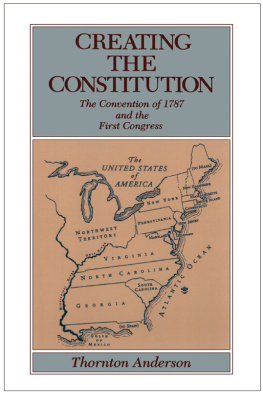

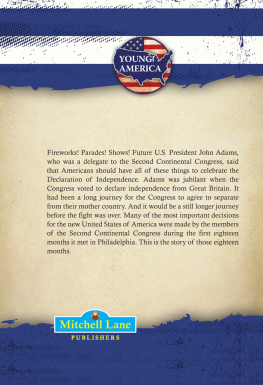
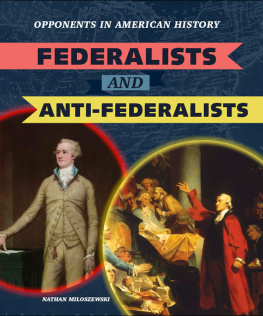
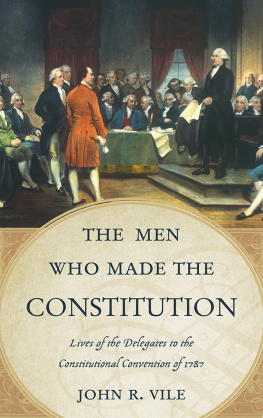
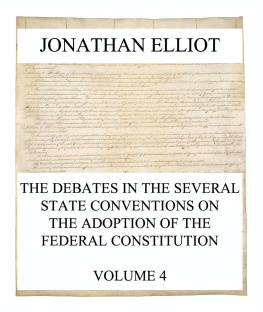
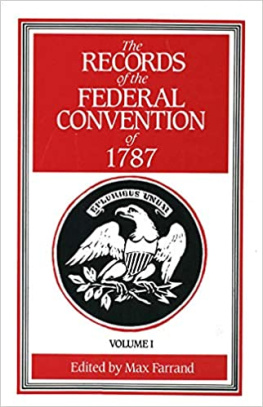
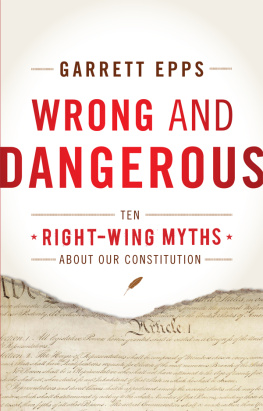
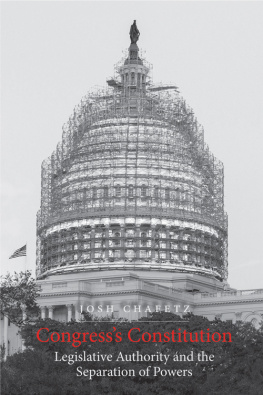
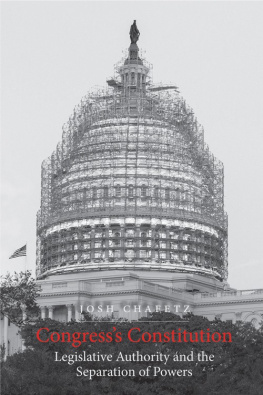
![Jay John - The Federalist : a collection of essays, written in favour of the new Constitution, as agreed upon by the Federal Convention, September 17, 1787. : In two volumes. Vol. I[-II.]](/uploads/posts/book/76130/thumbs/jay-john-the-federalist-a-collection-of-essays.jpg)
